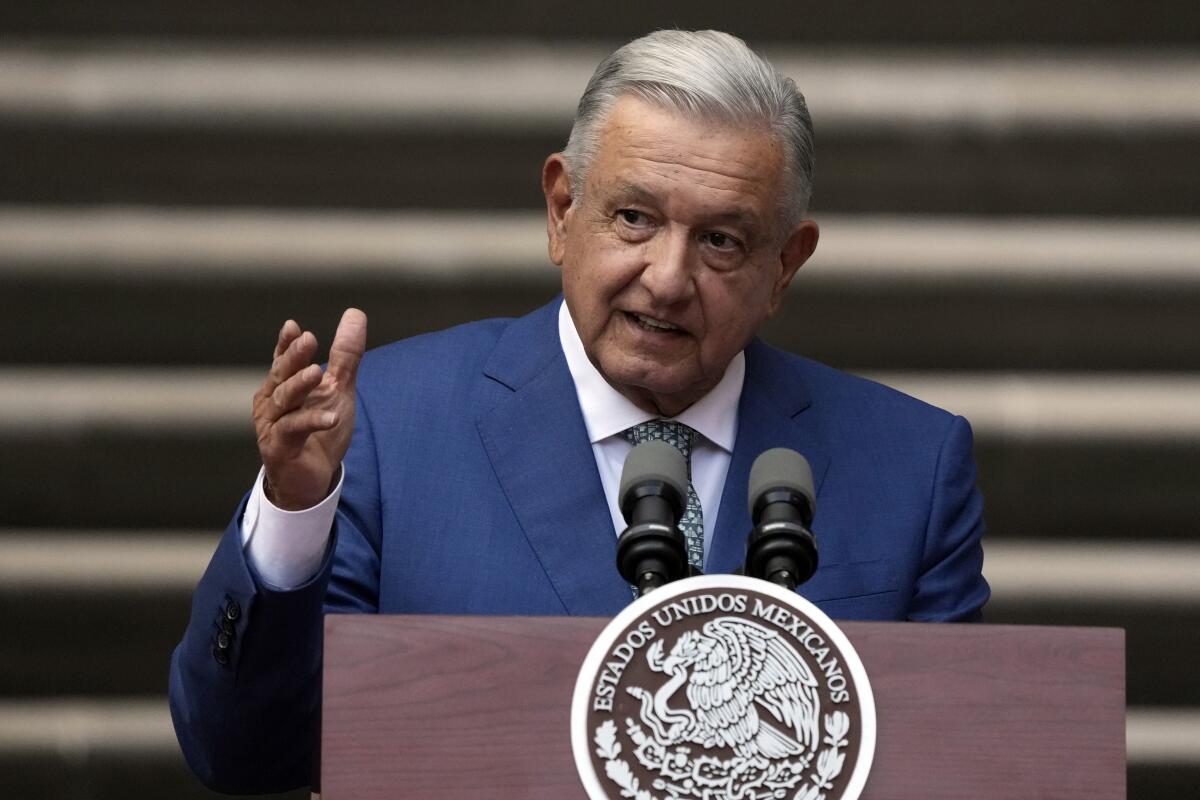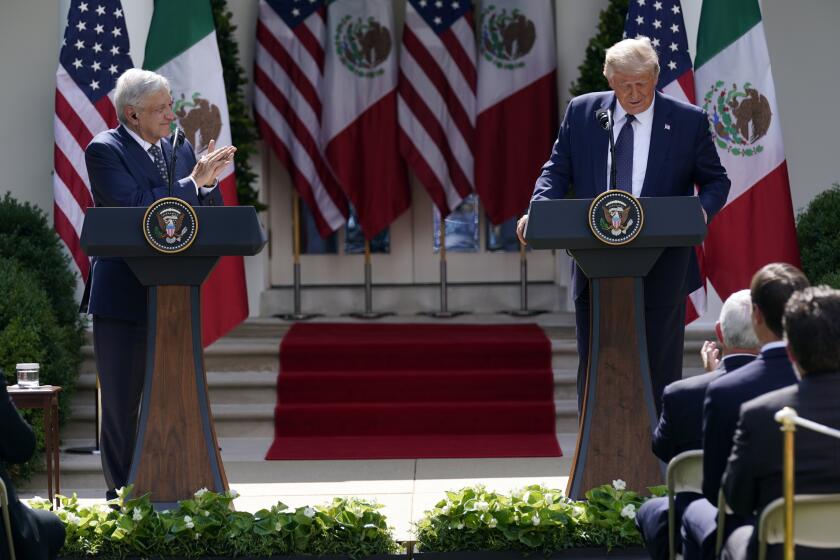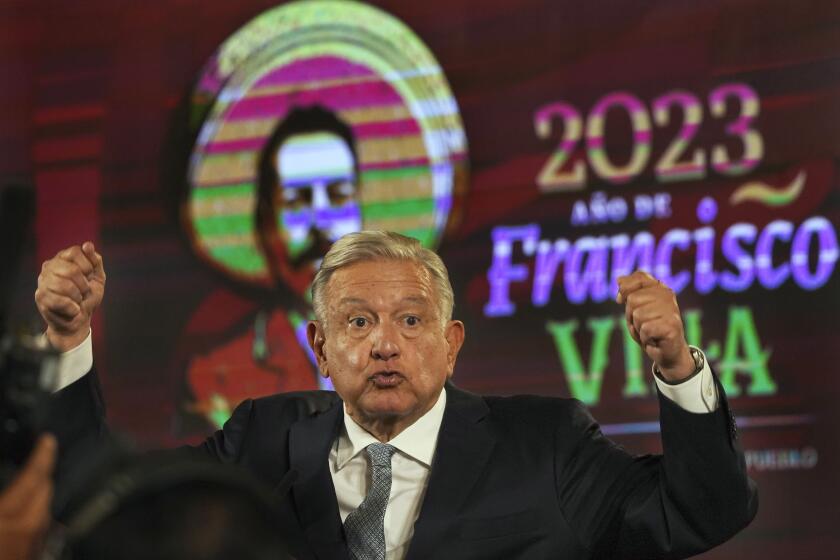Mexican president’s state of the union address suggests crime is not a problem

MEXICO CITY — Mexico’s president on Friday delivered his second-to-last state of the union, and perhaps what was most striking of his roughly 1½-hour speech was what he didn’t talk about: drugs, crime or drug cartels.
Experts and residents agree that wide swaths of Mexico are under the de-facto control of drug cartels, but President Andrés Manuel López Obrador mentioned gangs — and drugs — zero times.
Mexico also has more than 111,000 missing people, who weren’t mentioned in the speech.
Crime in general merited less than one minute of the president’s speech, which focused almost entirely on what the president viewed as successes of his administration.
For example, he cited a decline in the poverty rate in Mexico from 49.9% of the population in 2018 to 43.5% in 2022, though that was in some part due to the huge rise in remittances, the money sent home by Mexicans working abroad.
For Mexican President Andrés Manuel López Obrador, appearing to stand up to the United States has proved to have political benefits at home.
The only thing López Obrador had to say about security policy was that his anti-crime strategy was working, even though homicides remain at historically high levels.
“Our strategy of applying the principle that peace is the fruit of justice is working well,” the president said, a reference to job-training and youth programs he says will reduce the ranks of recruits for drug gangs.
He claimed Mexico has seen a drop of 17% in homicides under his administration, but in fact homicides had already fallen about 7% from their mid-2018 peak when López Obrador took office in December of that year. The president is essentially taking credit for a drop that started under his predecessor, Enrique Peña Nieto.
The most reliable count released in July shows that homicides in Mexico declined by 9.7% in 2022 compared to 2021, the first significant drop during the current administration. Mexico’s National Statistics Institute said there were 32,223 killings in 2022.
Despite spiraling violence and a stagnating economy, Mexican President Andrés Manuel López Obrador has maintained sky-high approval ratings because he speaks to the working poor.
The country’s homicide rate per 100,000 inhabitants dropped from about 28 in 2021 to 25 in 2022. By comparison, the U.S. homicide rate in 2021 was about 7.8 per 100,000 inhabitants.
However, the number of killings nationwide appears to have essentially flatlined in the first half of 2023, when there were 15,122 killings, compared to 15,381 in the same period of 2022. At the current rate, López Obrador’s administration will see far more homicides than any of his predecessors.
It is common for Mexican presidents to tout the successes of their administrations in state-of-the-union addresses and downplay problems, but López Obrador has taken that to an extreme.
There was no mention of the fact that lime growers in southern Mexico say that drug cartel threats and demands for protection payments have reached levels not seen since 2013.
President Andrés Manuel López Obrador responded to what he took as thinly veiled U.S. criticism of his controversial electoral reforms in Mexico.
There was also no mention of the fact that seizures of methamphetamines rose from about 36 tons in 2022 to 230 tons in the first eight months of 2023. On Friday, prosecutors announced they seized 2.6 million fentanyl pills hidden in the frame of a freight truck on a highway in northern Mexico that leads to the U.S. border.
In July, Mexico’s government statistics agency acknowledged it had to pay gangs to enter some towns to do census work last year.
And in recent months Mexico has seen instances of brutality and drug cartel control it hadn’t seen since the darkest days of the 2006-12 drug war.
Security officials have acknowledged that in recent months, law enforcement officers and soldiers have been targeted by roadside bombs, car bombs and bomb-dropping drones.
In the western state of Jalisco, videos surfaced in August showing a young man kidnapped by a drug cartel — one of a group of five friends — being forced to execute one of his fellow victims. Forcing victims to fight each other to death was a hallmark of the notorious Zetas cartel in 2011.
More to Read
Sign up for Essential California
The most important California stories and recommendations in your inbox every morning.
You may occasionally receive promotional content from the Los Angeles Times.













